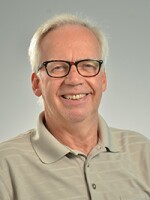Three women gymnasts from the Kansas City area — Leanne Wong, Kara Eaker and Aleah Finnegan — have a shot at making the United States' Olympic team when the USA Gymnastics national championships get underway at the Sprint Center on Thursday.
None of the three is scheduled to graduate from high school until 2021.
And as they train for the 2020 Summer Olympics, athletes are deciding whether college is in their future. An NCAA study on whether they can financially benefit from the use of their images and likenesses may sway them.
MyKayla Skinner, for example, announced last April that her collegiate career at the University of Utah would be placed on hold. Skinner, an alternate with the famous Final Five at the 2016 Olympics, intends to compete at the U.S. nationals and will continue to train at the elite level with the hope of locking down a spot on the 2020 USA team.
Under the current rules, if any of the gymnasts competing in Kansas City this week were to make money on signing autographs or from selling posters of themselves, they would be ruled ineligible by the NCAA.

That bothers Al Fong, who trains Wong, Eaker and Finnegan at the Gage Center gym in Blue Springs, Missouri.
“They’re here from four years to eight years, sometimes to 12 years for that (Olympic) dream,” said Fong. “They have to fund this thing all by themselves and when they get to college, they can’t even benefit, except a scholarship and nothing else. I just don’t think that’s right.”
Former Olympic gymnast Terin Humphrey, who trained under Fong, wishes things had been different when she was in college. Before attending the University of Alabama, Humphrey grew up in Bates City, Missouri. She she said the sport’s financial demands on her family were significant.
“My dad worked four jobs. My mom worked three just to get by. It’s expensive,” she said, repeating that for emphasis: “Expensive.”
Humphrey won two silver medals in the 2004 Olympics and netted $30,000 from the U.S. Olympic Committee. In retrospect, Humphrey said that sum didn’t go far.
“(Of) course, you have to pay taxes on it, so I bought a car and that was about it,” she said.
After the Olympics, Humphrey competed for the Crimson Tide on a scholarship, but with no additional compensation.
“I did see my face on billboards everywhere,” she said with a laugh. “If I could’ve benefited from that, it would have been pretty cool.”

For years, the NCAA has faced questions of who should profit from players’ images and likenesses, especially in big-money college sports like football and basketball.
An antitrust suit filed by former UCLA basketball player Ed O’Bannon against the NCAA was tied up in court for years before the Supreme Court decided in 2016 that it would not review the case.
This spring, after North Carolina Congressman Mark Walker introduced the Student-Athlete Equity Act, the NCAA president and board of governors created a working group to study the issue. The group, which includes Big 12 commissioner Bob Bowlsby, is scheduled to present its final report in October.
In the meantime, athletes are taking more control of their options in different sports.
Michael Andrew and his family lived in Lawrence, Kansas, when he became a pro swimmer at age 14. He signed an endorsement deal with a nutritional supplement company (P2Life) that used his image for ads. In doing so, Andrew forfeited his eligibility to compete in college.
Peter Andrew, Michael’s father and coach, said the decision was easy.
“We don’t believe in that whole (NCAA) system,” the elder Andrew said. “It just seems very failed. And wrong.”
The Andrew family has since moved to California and Michael, now 20, is racing all over the world.
“The best education, I think, you ever get is from traveling,” he said. Andrew was a member of the USA swimming team at the world championships last month in Gwangju, South Korea.

While the NCAA studies the possibility letting athletes use their names, images and likenesses for endorsement deals, it is not considering letting students get paid for playing college sports.
All of this comes as the underbelly of college basketball was exposed last fall, when a former Adidas executive revealed during court testimony how an outside entity can steer around the NCAA’s rules with money and influence.
Basketball players are known for turning pro before they graduate from college, or in some cases even attending college. Instead of playing for the Kansas Jayhawks (one of the three finalists he considered as a college option), five-star basketball recruit R.J. Hampton from Little Elm High School outside of Dallas, Texas, signed with a professional team in New Zealand.
With alternatives like competing overseas, the structure of amateur athletics is evolving. The big question is whether the NCAA evolves.
Fong believes change is inevitable.
“I think for so many decades they (the NCAA) had their way for so long,” he said. “But then you start losing top athletes from all the sports and (they’re) saying, ‘Hey, we don’t even need you guys anymore.’”
Greg Echlin is a freelance sports reporter for KCUR 89.3.





